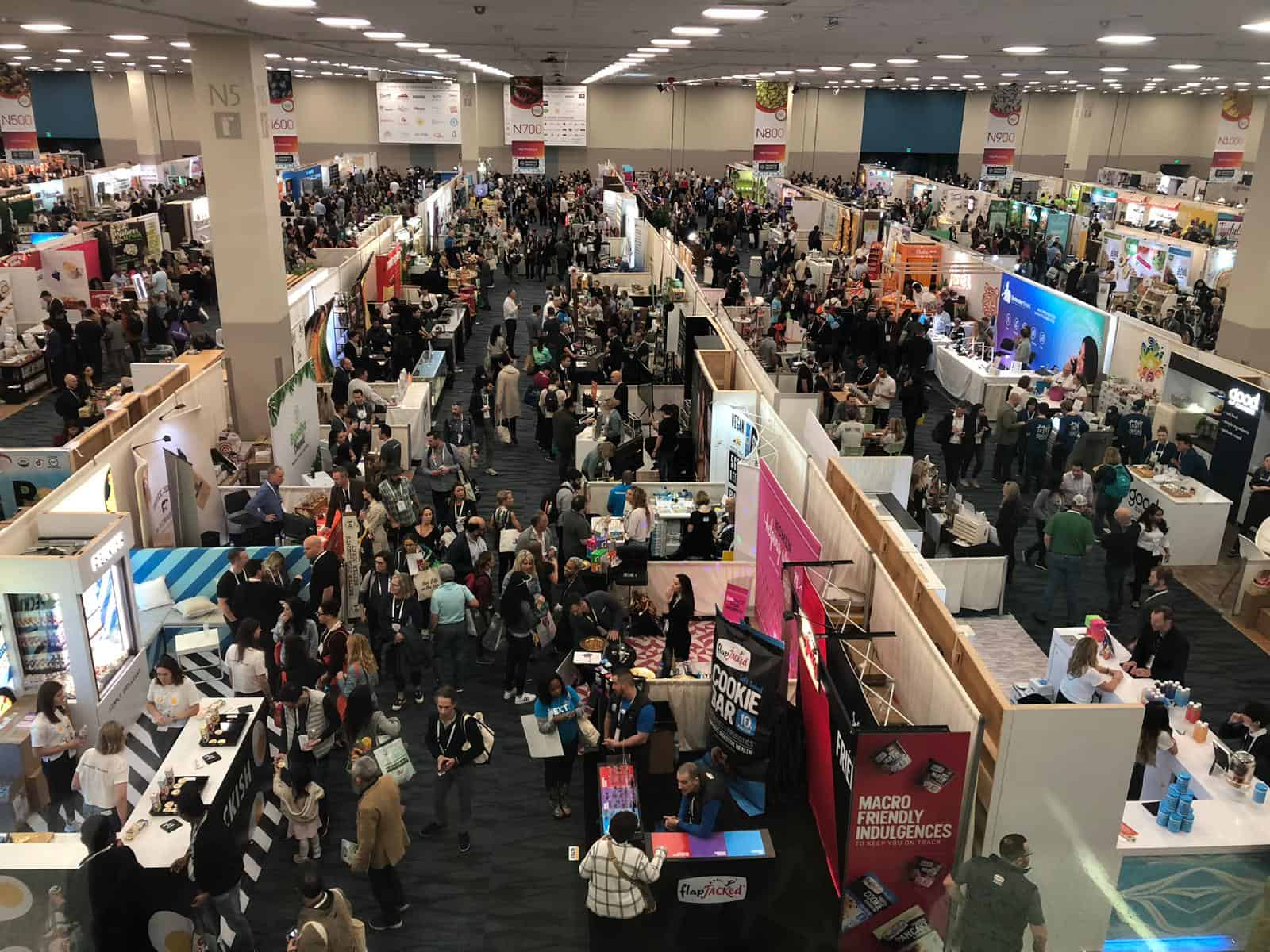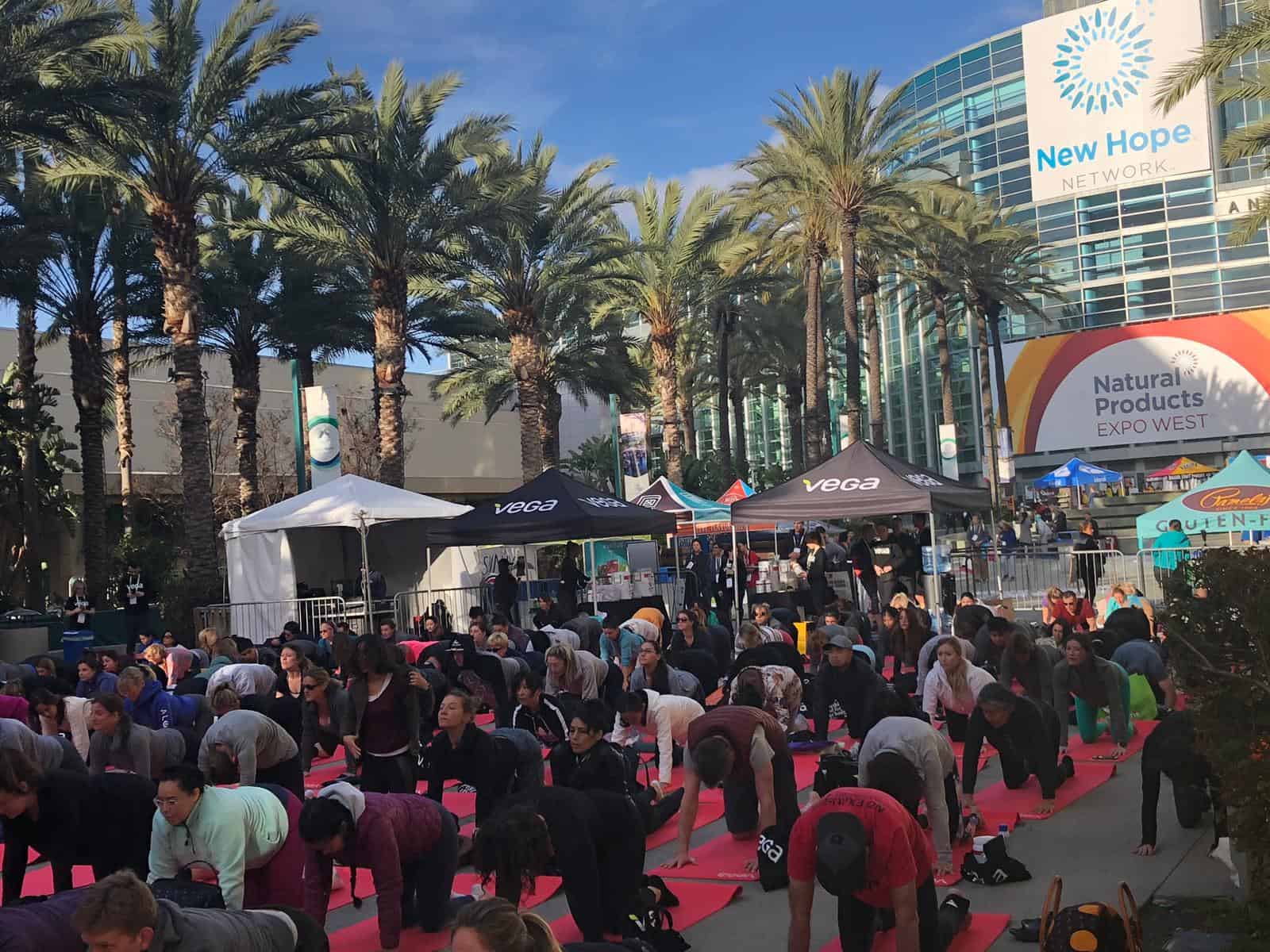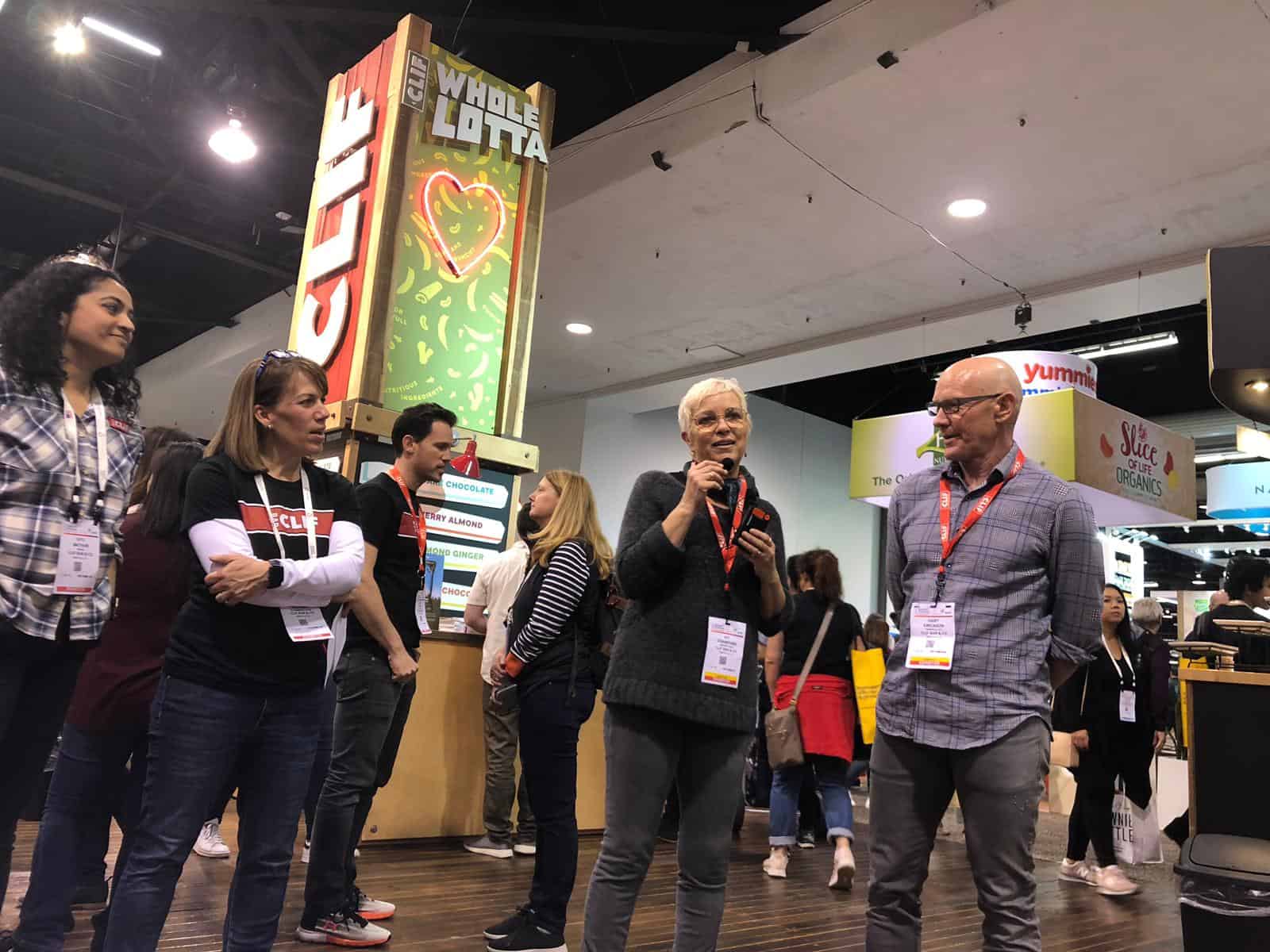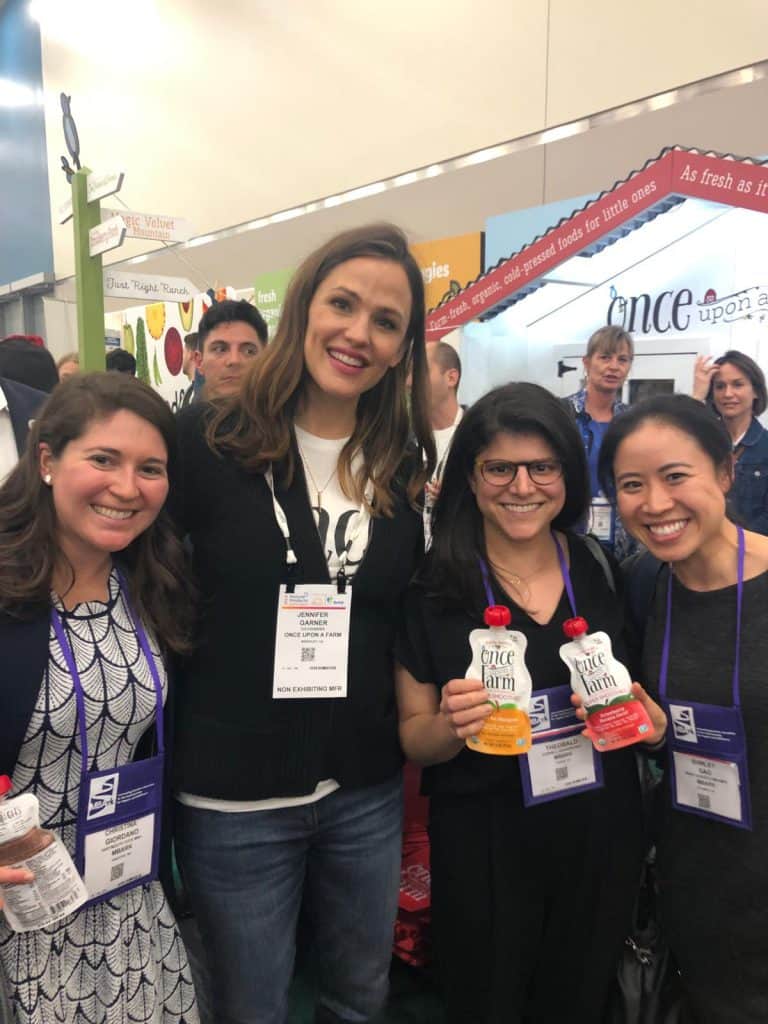Natural Products Expo West: Food as a driver of social, environmental causes

Over 3,600 companies exhibited the newest and greatest in natural and organic foods and products at one of the world’s largest trade shows.
“There’s no business to be done on a dead planet.”
I thought about this quote a lot in the last couple weeks. In early March, I traveled to Anaheim and attended the 39th annual Natural Products Expo West, the world’s largest trade show focused on natural, organic and healthy food and products. Though Expo West was a whirlwind of people (over 86,000 people from 136 countries attended!) and programming over five jam-packed days, one clear theme emerged from all my conversations: that business could — and should — be used as a force to advance social and environmental causes.
Consider the quote above. I heard it from Yvon Chouinard, the founder of Patagonia, who delivered the keynote address on the first day of Expo West. During his talk, he urged attendees to consider the role that business could play in combating climate change. “All of us have resources and we need to use them. What resource do I have? I have this company. I thought to myself, ‘I’m not doing enough.’”
I was fortunate enough to attend Expo West and meet leaders like Chouinard through the support of the Social Enterprise @ Goizueta (SE@G) and a program called MBArk. Now in its eighth year, MBArk (pronounced “embark”) brings together cohorts of progressive business school students and sends them to large trade shows to explore careers in sustainability, entrepreneurship and food.
A jam-packed schedule of educational and professional programming
This year, I met up with 53 other students from top MBA programs around the U.S. for a full suite of programming centered at Expo West. The MBArk program included networking opportunities, including dinner with MBArk alum, happy hour with General Mills executives and breakfast with 40-plus CEOs. With other MBArk participants, I attended numerous booth visits, which were designed-for-us opportunities that allowed deep-dives into specific companies such as Zupa Noma, KeHe, Honest Tea, Beyond Meat, Daiya, Clif Bar and Zevia. Finally, we also attended themed panels around e-commerce (hosted by Thrive Market) and sustainability (Dr. Bronner’s and General Mills).
In between these MBArk sessions, the other participants and I would take advantage of the programming Expo West had organized directly. A few highlights included daily morning yoga, Climate Day (a full day of panels focused on climate change and the approaches companies are taking to reduce packaging, use renewable energy and support regenerative agriculture), and of course, exploring the booths and sampling new products from the 3,600 companies present.

Each day of Natural Products Expo started with optional morning yoga outside the Anaheim Convention Center – a great way to warm up the body before full days of sampling foods, networking, and hustling from one hotel to another!
The schedule was packed, but I didn’t feel exhausted during the conference, despite being on my feet all day and talking to what felt like hundreds of people a day. This is because at this point in my business school career, I found the conversations I had at Expo West to be very refreshing and inspiring. Stories shared by industry executives, as well as my MBArk fellows, brought my MBA classroom learnings into real-life. Walter Robb, former CEO of Whole Foods, reminded me of the importance of knowing your customer, knowing them well, and not trying to serve a nonexistent “average” customer. “People are breaking into food tribes: we have paleo, keto, Whole30, etc.,” he said. “Retailers are thinking about how we can communicate with and connect with each of those segments.”
Sheryl O’Loughlin, CEO of REBBL, maker of super herb beverages, echoed this key lesson when she shared this piece of advice, “Focus on your niche audience, don’t focus on the mass at first.” As the former CEO of Clif Bar, she introduced LUNA Bars as the first nutrition bar aimed at women. “I noticed that women were not being served by this industry. Grow the pie: find out who is not going or participating in something, and invite them in.”
More broadly, Expo West showcased real-life examples of businesses that yielded both financial profits and a wider societal impact. For instance, co-founder and co-CEO Nick Green spoke to the MBArk program about his vision for Thrive Market, positioning it as an online platform meant to expand organic and healthy food access to more Americans. CEO of Zevia, Paddy Spence, explained how his products provided people with a healthier soda alternative that was naturally sweetened and contained zero calories.

Gary Erickson and Kit Crawford, the husband and wife co-owners of Clif Bar, speak with MBA students about building capacity in sustainable supply chains by funding organic research and sharing best practices with other CPG companies.
Reflections on 5 days in Anaheim
After Expo West, I’m left with a sense that business leaders can and should take a larger, systemic view around the impact they have on social and environmental issues. I’m also left with questions around the limits of their role. As someone with academic and career experience in public policy, I’m aware of the critiques around conscious capitalism and its assumptions of privilege: you still need a fair amount of education, disposable income, and leisure time to understand, research and buy organic products.

Jennifer Garner, co-founder of cold-pressed, organic baby food brand Once Upon a Farm, stopped by the expo floor to greet fans.
Most thought-provoking for me, though, was the limited conversations at Expo West around the role of policy in creating lasting, systemic change. A few companies referenced how they used their platforms to encourage their consumers to support progressive political causes and/or pressure government to take action; these included Brenna Davis, VP of social and environmental responsibility at PCC Community Markets (a Seattle grocery store), who spoke during Climate Day about using store newsletters to educate consumers on local political campaigns.
In the future, I’m hoping to further explore (1) other companies’ initiatives in this policy-influencing arena and (2) a policymaker’s perspective (whether local, state, or national) on the role of business. For instance, I’d love to see a one-to-one conversation between an executive and policymaker who have worked together on regulations pertinent to the natural foods and product industry, or a stand-alone policymaker talk that highlighted how a business changed their mind about advancing certain policies.
In the end, I came away from Expo West with new friends, industry contacts, enough samples to last me the month (how could I not mention that?!) and plenty of food for thought (pun completely intended). I’m eager to use my newfound knowledge and relationships to be that much more aware of not only what I consume and what I see on grocery shelves, but also the opportunities to reformulate conventional business structures and assumptions to advance social and environmental causes.
